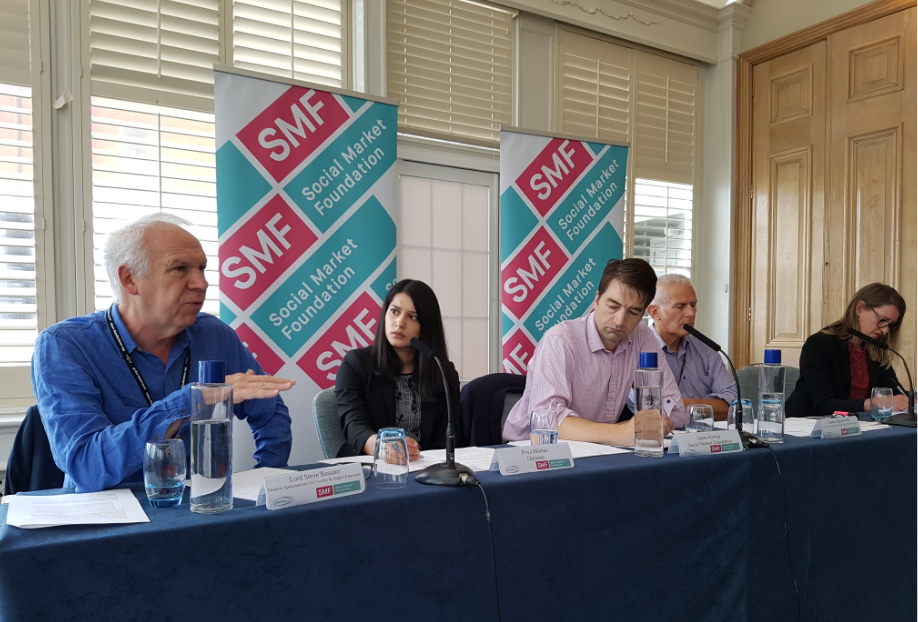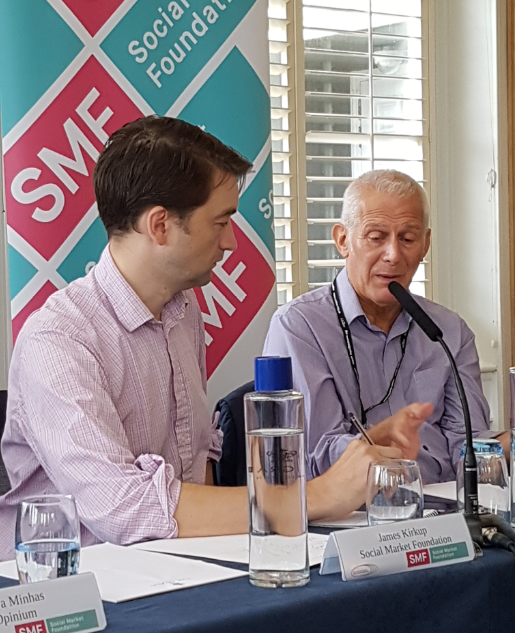In a panel event supported by The Further Education Trust for Leadership (FETL), speakers discussed what a thriving FE sector could look like, and how government, business and providers could work together to better support FE its learners and its leaders.
Speakers:
Gordon Marsden MP, Shadow Minister for Higher & Further Education and Skills
Lord Bassam of Brighton, Shadow Spokesperson for Further and Higher Education
Caireen Mitchell, Principal and CEO, Croydon College
Priya Minhas, Research Manager, Opinium
Chair: James Kirkup, Director, Social Market Foundation

Priya Minhas kicked off the discussion by revealing Opinium polling showing that the British public place a high value on vocational and technical qualifications, and consider them at least as valuable as university degrees in terms of delivering skills that are useful in the workplace.
However, university degrees still present certain advantages in relation to higher education in several ways. This included being a better long-term investment in terms of income over time. There is also still a perception that while a degree is not always needed to do a job, it is more helpful in getting a job.
There was general agreement among panellists that FE and vocational training will be increasingly important if the UK is to be able to compete post-Brexit.
Steve Bassam said: “If we don’t grasp this now, we will suffer in the post-Brexit world, because we will have to compete in a tougher environment. We are going to have to expand further education, which is critical to improving economic performance.”

The panel also agreed that the sector needs much rejuvenation from government and carefully-considered policy. The sector has been facing major cuts preventing students from taking desired college courses. Bassam warned the sector cannot be squeezed at the current pace. Level 2 and Level 3 qualifications are already inaccessible to most adults in the UK.
Indeed, Caireen Mitchell warned there has been a huge decline in Level 2 and Level 3 learners over the age of 19. Such courses are key to social mobility and productivity. Caireen Mitchell explained the effect of huge cuts in funding on her college: she had spent her entire 2019/20 budget for adult education by 5th September. As a result the college had to turn down willing students, and currently has a 200-long waiting list for adult courses: how can that situation be reconciled with political promises to support lifelong learning?
The panel discussed different funding solutions. Gordon Marsden said Advanced learner loans have been a disaster, with 60 percent of government money available not having been picked up, and instead been returned to the Treasury. This has been to the detriment of not only the students, but colleges as well.

“If you’re a college, you need a mixed economy – this is a practical thing, this is not just about social empowerment or anything else – you need a mixed economy of pre-and post-19 learners. If you don’t get those funding streams with that mixed economy – it’s not just desirable for inclusion of the communities concerned – it’s vital for their survival by sustaining a wide range of courses and sources of income. If you lose, for a variety of reasons, adult learners, and you have to close courses because they’re not doable on their own, then the of the college reach sinks.”
Moving forward, Marsden stated this endless further education vs university debate should not be continued. Rather we should be recognising that higher education and further education need to have parity of esteem, and give them both the maximum amount of opportunities. He also confirmed that Labour’s policy commission on lifelong learning will release its final report no later than early 2020.
To watch a recording of the busy event:

